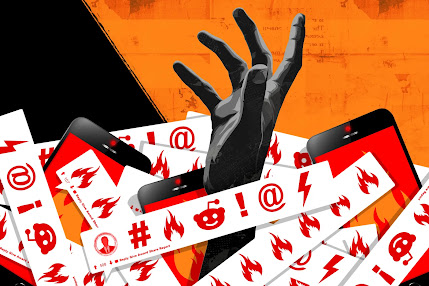By his own account, the young man's radicalization began not long after the start of the pandemic, when he was largely restricted to his home like millions of other Americans.
He described getting his news mostly from Reddit before joining 4chan, the online message board. He followed topics on guns and the outdoors before finding another devoted to politics, ultimately settling on a place that allowed a toxic melange of racist and extremist disinformation.
Although he frequented sites like 4chan known to be on the fringes, he also spent considerable time on mainstream sites, according to his own record, especially YouTube, where he found graphic scenes from police cameras and videos describing gun tips and tricks.
As the day of the attack neared, the accused teenager watched more YouTube videos of mass shootings and police officers engaged in gunfights.
Much of the images and text that the young man has in his extensive writings, which included a 180-page ''manifesto,'' have circulated for years online. Often, they reached some of the world's most popular sites, including Reddit and Twitter.
His path to radicalization, illustrated in these documents, reveals the limits of the efforts by the companies such as Twitter and Google to moderate posts, images and videos that promote extremism and violence.
Enough of that content remains that it can open a pipeline for users to find more extreme websites only a click or two away.
''It's quite prolific on the Internet,'' said Erk K.Ward, a senior fellow at the Southern Poverty Law Center. '' It's not just going to fall in your lap; you have to start looking for it. But once you start looking for it, the problem is that it starts to rain down on a person in abundance.''
The attack in Buffalo has renewed focus on the role that social media and other websites to play in the acts of violent extremism, with criticism coming from the public as well as government officials.
The New York State attorney general, Letitia James, has announced an investigation into the role the social media played in the shootings.
Facebook pointed to its rules and policies that prohibit hateful content. In a statement, a spokeswoman said the platform detects over 96 percent of content tied to hate organizations before its reported.
Twitter declined to comment. Some of the social media posts on Facebook, Twitter and Reddit that The New York Times identified through reverse image searches were deleted; some of the accounts that shared the images were suspended.
The man charged in the killings, Payton Gendron, 18, detailed his attack on Discord, a chat app that emerged from the video game world in 2015, and streamed it live on Twitch, which Amazon owns. The company managed to take down his video within two minutes, but many of the sources of disinformation he cited remain online even now.
His paper trail provides a chilling glimpse into how he prepared a deadly assault online, culling tips on weaponry and tactics and finding inspiration in fellow racists and previous attacks that he largely mimicked with his own.
Altogether the content formed a twisted and racist view of reality. The gunman considered the ideas to be an alternative to mainstream views.
''How does one prevent a shooter like me you ask?'' he wrote on Discord in April, more than a month before the shooting. ''The only way is to prevent them from learning the truth.''
His writings map in detail the websites that motivated him. Much of the information he cobbled together in his writings involved links or images he had cherry-picked to match is racist views, reflecting the kind of online life he lived.
At the center of the shootings, like others before it, was a false conviction that an international Jewish conspiracy intend to supplant white voters with immigrants who will gradually take over political power in America.
Hatred online expands from the fringe sites. And despite tech firm's efforts, violent ideas are frequently only a click or two away.
The Publishing continues. The World Students Society thanks authors Stephen Lee Myers and Stuart A Thompson.

.png)


0 comments:
Post a Comment
Grace A Comment!